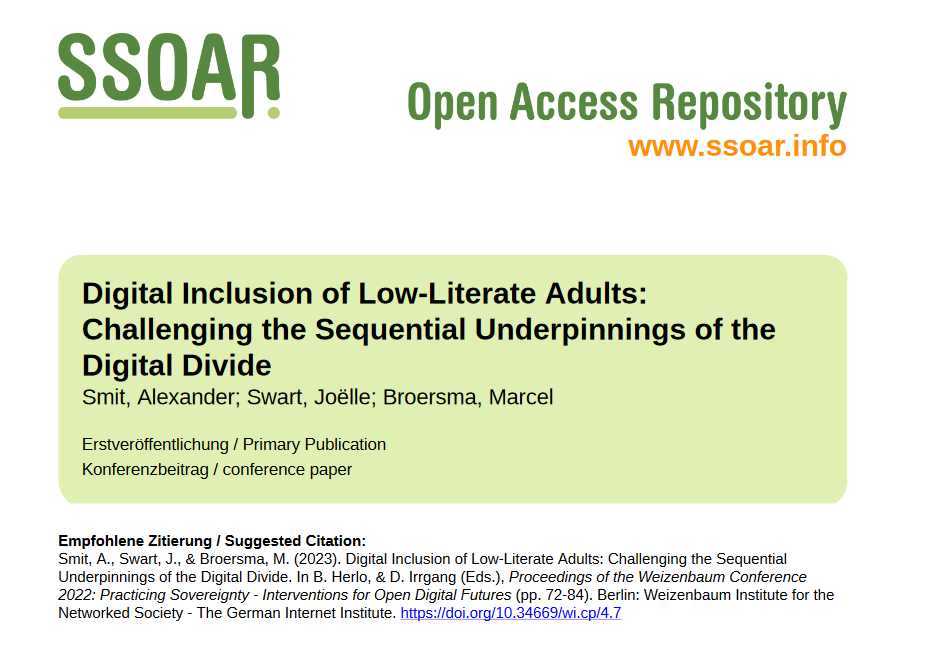Our recent contribution ‘Digital Inclusion of Low-Literate Adults: Challenging the Sequential Underpinnings of the Digital Divide ‘, by Alexander Smit, Joëlle Swart en Marcel Broersma, has been published in the Proceedings of the Weizenbaum Conference 2022: Practicing Sovereignty – Interventions for Open Digital Futures
The contributions investigate new opportunities for digital participation and policymaking and discuss alternative technological and social practices from various fields and disciplines. In this framework, digital sovereignty is conceptualized as a right to be claimed and a process constantly in the making, as a condition of the ability to critically partake in the digital transformation. Volume editors are Bianca Herlo and Daniel Irrgang
Our contribution aims at challenging contemporary models of digital inclusion and the digital divide. We argue that current models of the digital divide assume that developing the digital literacy that enables individuals to participate in society is a sequential and linear process that is more or less similar for all individuals in all contexts and requires basic linguistic skills. This paper challenges these understandings, arguing that such a technical, normative perspective excludes marginalized and disadvantaged publics, such as low-(digital) literate citizens. Based on a longitudinal ethnographic study of low-literate Dutch adults, we show that the often-described causal relation between (digital) literacies, (digital) participation, and (digital) inclusion is not as evident as it seems and neglects the important socio-cultural contexts through which (digital) literacies are often gained and enacted in everyday practice. Consequently, we argue that current conceptualizations of
(digital) inclusion and (digital) participation need to be rethought in terms of the limitations, potential, and capabilities of low-literate people.
